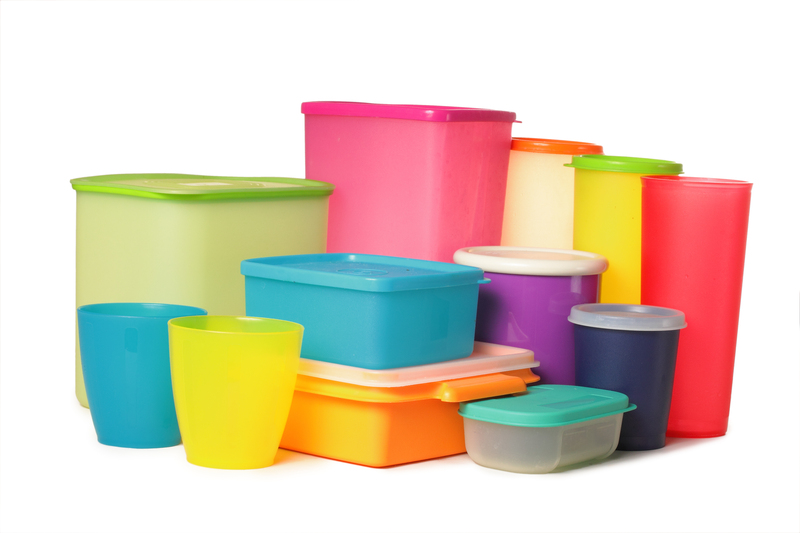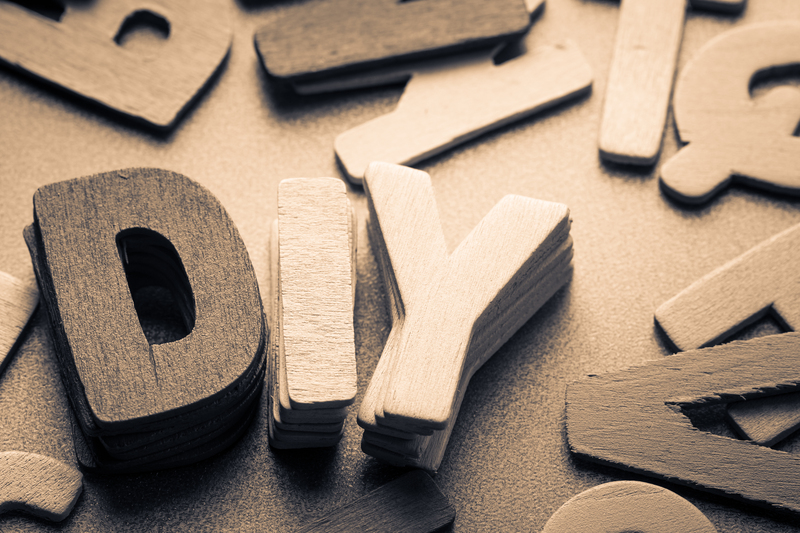Become A Recycling Pro With These Essential Home Tips
Are you eager to make a positive impact on the environment from the comfort of your own home? Recycling correctly is one of the simplest, yet most effective steps you can take to contribute to a cleaner, more sustainable planet. In this comprehensive guide, you'll discover practical recycling tips, expert insights, and clever hacks that will transform you into a genuine recycling pro!
Why is Home Recycling So Important?
You might wonder why proper recycling matters so much. The answer is clear: recycling reduces landfill waste, conserves precious natural resources, and limits pollution. Every correctly recycled item helps reduce energy consumption and greenhouse gas emissions. As awareness grows, so does the impact each household can have--your efforts do matter!

Understanding the Recycling Basics: What Goes Where?
Before you level up your recycling game, revisit the basics. It's essential to know what materials are accepted in your local curbside program versus what must be handled differently. Many municipalities have different rules, so always check local regulations. Here's a general guideline to get started:
- Paper: Newspapers, office paper, magazines, cardboard (flattened).
- Plastics: Most containers labeled with recycling codes #1 and #2.
- Metals: Aluminum cans, tin cans, and clean foil.
- Glass: Bottles and jars (rinsed and free of lids).
Do not recycle diapers, food-covered items, plastic bags (unless your city accepts them), or hazardous materials.
The Importance of Clean Recycling
Did you know that even a little bit of leftover food or liquid can ruin an entire batch of recyclables? Always rinse containers and remove any food residue before tossing them in the bin. Clean materials are far more likely to be successfully processed.
How to Set Up Your Ultimate Home Recycling Station
Organization is key to successful recycling at home. Here are step-by-step instructions for designing your own efficient, easy-to-use recycling setup:
- Choose the Right Location: Place recycling bins where they're most convenient--kitchens, garages, or near entrances work best.
- Separate by Material: Have clearly labeled bins for paper, plastics, metals, and glass.
- Use Clear Signage: Attach lists or icons on your bins to remind everyone in your household what belongs where.
- Ensure Accessibility: Make sure all family members can easily access and understand the system, including kids!
Pro tip: Consider color-coding your bins for instant visual cues--blue for paper, green for glass, yellow for metals, etc.
What NOT To Recycle: Home Contaminants To Avoid
Even recycling experts can accidently toss in the wrong items. Here's a quick list of common contaminants that should never go in your home recycling bin:
- Plastic bags and films (unless accepted curbside in your area).
- Pizza boxes or food-soiled paper.
- Styrofoam containers and packing peanuts.
- Greasy or wax-coated containers.
- Ceramics, light bulbs, or drinking glasses.
If you're unsure about an item, look it up on your city's recycling website or consult the packaging for disposal instructions.
Advanced Recycling Tips for Every Home
1. Rinse Before You Recycle
It bears repeating: Dirty recyclables can ruin entire batches of otherwise perfect materials. Take a moment to rinse all cans, bottles, and containers before recycling. This will help keep your bins odor-free and ensure everything is properly sorted at the facility.
2. Break Down and Flatten Boxes
Cardboard boxes can quickly fill up recycling bins. To save space and streamline collection, always break down boxes and flatten them before recycling. This also prevents them from jamming in sorting machinery.
3. Keep Lids and Caps On
Depending on your local guidelines, it might be best to recycle bottles and jars with their lids and caps on. Many facilities now have the technology to process these items together, but check your local policy to be sure.
4. Don't Recycle Small Items
Bottle caps, straws, plastic utensils, and other small items (smaller than a credit card) often fall through sorting machinery and cannot be properly recycled. Stick to larger items for most home recycling bins.
5. Compost Food Waste
Did you know composting is a powerful complement to recycling? Food scraps and compostable paper belong in the compost bin, not the recycling bin. Composting reduces methane emissions and enriches your garden soil!
6. Dispose of Hazardous Waste Properly
- Batteries
- Electronics
- Chemical cleaners and paint
These items require special handling. Take them to your city's hazardous waste drop-off sites or local electronics recycling facilities.
Reduce, Reuse, Recycle: Broadening Your Impact
Being a recycling pro at home is about more than just what you put in your bin. The classic phrase--Reduce, Reuse, Recycle--highlights other powerful strategies to shrink your waste footprint.
Reduce
- Buy in bulk to cut down on packaging.
- Choose products with minimal or recyclable packaging.
- Avoid single-use plastics when possible.
Reuse
- Repurpose glass jars and containers for storage or crafts.
- Use cloth bags when shopping.
- Donate items that are still in good condition.
Recycle
- Stay informed about your community's recycling updates.
- Encourage others in your household to participate.
- Keep learning about new recycling and upcycling trends!
Recycling Pro Myths vs Facts
Myth: "Everything with a recycling symbol can go in my bin."
Fact: This isn't always true! The number inside the recycling symbol tells you which plastics are recyclable in your area. Always check your local guidelines!
Myth: "It's okay to throw dirty containers into the recycling bin."
Fact: Dirty containers can contaminate entire loads of recycling, causing more waste than good. Clean is key!
Myth: "If in doubt, just recycle it."
Fact: Wishcycling (recycling the wrong things 'just in case') can actually cause big problems at recycling facilities. When in doubt, find out!
Get the Whole Family Involved
Turning recycling into a family affair makes the process easier and more fun. Here's how you can foster a recycling culture at home:
- Give kids specific recycling responsibilities--sorting, rinsing, or labeling bins.
- Hold quick recycling quizzes to test (and improve) everyone's knowledge.
- Celebrate milestone achievements such as a month of perfect recycling!
Building these habits early helps the next generation become devoted recyclers too.
Stay Updated: Follow Local Recycling Updates and Innovations
Recycling rules and technologies change over time. Stay informed by signing up for your city's waste management newsletters, or following your local recycling authority on social media. Innovative programs--like food-waste collection, textile recycling, and electronics drop-offs--are expanding every year, making it easier than ever to be a recycling expert at home.
Recycling Beyond the Bin: Common Special Items
Some household items require special recycling approaches. Don't toss these into your regular bin--find a suitable drop-off program instead:
- Electronics: Old phones, computers, and chargers can often be recycled at special electronics centers.
- Batteries: Many home improvement stores have battery recycling drop-offs.
- Light Bulbs: CFLs and fluorescent bulbs need special handling.
- Textiles: Clothing and linens can go to textile recycling or donation centers.
- Plastic Bags and Film: Many grocery stores have dedicated bins for bag recycling.
Creative Ways to Upcycle and Reuse at Home
If you're feeling crafty, look for opportunities to upcycle materials at home. Here are some easy ideas:
- Turn glass jars into storage containers or vases.
- Use plastic bottles for gardening and irrigation.
- Convert cardboard boxes into drawer organizers or kids' playhouses.
- Craft with old magazines and newspapers--collages, wrapping paper, and more!
Upcycling is not only eco-friendly, but adds a touch of creativity and uniqueness to your home.
Summary: Mastering Home Recycling--It's Easier Than You Think!
Becoming a home recycling pro comes down to a few essential tips: know your local rules, always clean recyclables, keep things sorted and organized, and don't be afraid to ask for help or find answers. Remember, every positive change counts, and the collective impact of thoughtful home recycling is massive.
By practicing these essential recycling steps at home, teaching your family, and spreading the word, you're joining a global community committed to a healthier, less wasteful future. Start today, and watch your efforts make a real and lasting difference--one recycled item at a time.

Frequently Asked Questions About Home Recycling
What are the most common items people recycle incorrectly?
Plastic bags, greasy pizza boxes, batteries, and small items are often mistakenly recycled. Refer to your city's guidelines to see what's accepted locally.
Where can I recycle electronics and hazardous waste?
Check with your local municipality for dedicated electronics and hazardous waste collection days. Many retailers also offer take-back programs.
How clean do recyclables need to be?
Give containers a quick rinse to remove food and drink residue. They don't need to be spotless, but should be free of visible contamination.
Can I recycle plastic lids and caps?
Some programs accept them if they're reattached to the bottle or container; others require them to be removed. Double-check local policies.
Your Turn: Share Your Recycling Pro Tips!
Everyone has unique recycling hacks and strategies. Leave your best tips in the comments below, and help others become recycling pros too! Together, we'll make a sustainable impact--starting in our own homes.
Ready to become a true recycling pro? Start with these tips and inspire others to join your journey to a cleaner, greener world!